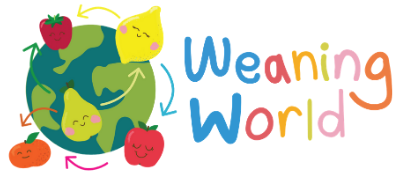What do the experts say about weaning in 2020?
There is so much advice available to families about giving babies solid foods, but what do the experts say?
How do you find accurate national and global expert advice on weaning your baby?
In the past, we would have talked to our own mothers, sisters and the wise women to the village. Now, we’re scouring the internet for advice. Read on to find out where you can get expert advice on giving babies solid foods direct from the professionals.
Weaning your baby – what professional advice is available?
Sometimes it can feel like there’s too much when you’re being bombarded by opinions from friends, advice from your family, the latest trends and celebrity fads. So what are the facts? Who should you be listening to?
What does the NHS say about getting started?
The NHS has sensible advice to give, supported by Public Health England. The Start 4 life website from the NHS says that, “Introducing your baby to solid foods, also referred to as weaning or complementary feeding, starts when your baby is around 6 months old. Your baby should be introduced to a varied diet, alongside their usual breast milk or first infant formula.”
This advice is backed up by the World Health Organisation (WHO) which says, “Infants should be exclusively breastfed – i.e. receive only breast milk – for the first six months of life to achieve optimal growth, development and health.”
How much and how often should I feed my baby?
The WHO advises, “Start at 6 months with small amounts of food and increase gradually as the child gets older; gradually increase food consistency and variety; increase the number of times that the child is fed: 2–3 meals per day for infants 6–8 months of age and 3–4 meals per day for infants 9–23 months of age, with 1–2 additional snacks as required.”
Can you raise your baby on a vegetarian or vegan diet?
Again, the NHS provide simple, sensible advice on their website. They say that, “Babies and young children on a vegetarian or vegan diet can get the energy and most of the nutrients they need to grow and develop from a well-planned, varied and balanced diet. It’s important to remember that cows’ milk and dairy foods are good sources of nutrients, so don’t cut them out of your child’s diet without first speaking to a GP or dietician – they can advise you on suitable milk alternatives.”
Should you give your baby vitamins?
The Start 4 life website advises, “From 6 months to 5 years, it’s recommended that all babies and children are given vitamin A, C and D every day. It’s also recommended that breastfed babies are given a daily vitamin D supplement from birth – whether or not you’re taking a supplement containing vitamin D yourself.”
Keeping you baby safe from allergies
According to the NHS, “When you start introducing solid foods to your baby from around 6 months, introduce the foods that can trigger allergic reactions one at a time and in very small amounts so that you can spot any reaction…These foods can be introduced from around 6 months as part of your baby’s diet, just like any other foods:
- cows’ milk (in cooking or mixed with food)
- eggs (eggs without a red lion stamp should not be eaten raw or lightly cooked)
- foods that contain gluten, including wheat, barley and rye
- nuts and peanuts (serve them crushed or ground)
- seeds (serve them crushed or ground)
- soya
- shellfish (don’t serve raw or lightly cooked)
- fish
How to reduce the risk of your baby choking
Choking can happen with hard foods, bones and small round foods that can easily get stuck in the throat. The Start 4 life expert advice is to, “cut small round foods, like grapes and cherry tomatoes, into small pieces, to peel the skin off fruit, vegetables and sausages (though remember that sausages can be high in salt), to remove hard pips or stones from fruit, to remove bones from meat or fish and to soften hard fruit and vegetables (such as carrot and apple) when first given to your baby from around 6 months.” You shouldn’t give whole nuts, peanuts or raw jelly cubes to children under 5 years old. You can find out more about safe weaning on their website.
Be guided by the experts
By taking the lead from reliable sources, you can be sure you are doing the best for your baby. Stay calm, and remember there’s no rush and no need to keep up with other people. You know your baby best and, armed with information from the experts, a soft spoon, a smile and some patience, you’ll soon be embarking on the next leg of your baby’s journey.
The Media Snug is the driving force behind National Weaning Week.
Disclaimer: The views and advice given in this article are those of the guest writer and do not necessarily reflect the opinions of Weaning Week or any other organisations represented on this platform
